- Home
- Hanna Hamilton
A Dashing Duke for Emily_A Historical Regency Romance Novel Page 2
A Dashing Duke for Emily_A Historical Regency Romance Novel Read online
Page 2
Short, round topiary bushes crossed along the front of the house on the far side of the drive, edging the lawn that led down toward a natural lake with an irregular shore with many small coves, surrounded by a natural wooded area.
Mark walked leisurely along the grand gallery toward a wing of the house known as the Duchess wing, because his grandmother, Hester, the Duchess of Edgerton, resided there. Mark’s mother had died giving birth to his sister Alice, leaving Hester as the reigning Duchess.
The grand gallery of Lindfield House was particularly attractive. A wide skylight ran the length of the gallery illuminating one of the finest art collections in private hands in all of Great Britain. Aside from the fine portraits of previous generations of the Linfield family, there was an extensive collection of English and European landscapes, religious paintings, military campaigns, and sea battles.
Mark had the same striking features that ran in the Linfield family. At thirty he was tall, aristocratically handsome with finely chiseled features, and had a graceful way of moving. He wore his blond hair loosely, but not long enough to reach his shoulders. He had never done manual labor, and his hands were long, thin, and beautifully proportioned. He would have been a natural pianist if he had ever been trained, but, alas, he was needed, even as a youngster, to learn the family business.
Mark arrived at the Duchess’s door and he knocked. The door was opened by Baggs, Hester’s maid.
“Is Her Grace available?” Mark asked.
“Yes, please come in,” the maid said, standing aside and allowing Mark to enter.
“Oh, Grandson, there you are. Come sit with me,” Hester said.
The Duchess was seated at a card table by a large window overlooking the lake of Linfield Park, playing solitaire. She was a large woman who favored loose clothing with lots of lace, believing it hid her unwelcome size. She was considerably advanced in age but her plump face showed few wrinkles, lending her the air of a sybaritic cherub.
“I do like to amuse myself at cards just before my luncheon. I believe it soothes and aids in one’s digestion.”
Mark sat opposite her at the table.
“I have recently come from Father’s bedside,” Mark said pointing to a card that could be played.
“And how is my poor son doing today?”
“About the same, but never well.”
Hester sighed. “I should be the first to die, but I am far too stubborn. And now he is wasting away with whatever that nasty business he has consuming him.”
“Doctor Benson is doing all he can. He bled him again earlier this morning.”
“Humph,” Hester muttered, shifting her weight in her chair and pulling at her clothing to free it up. “And then there is that snarly uncle of yours—fit as a fig. I am sorry he became a part of this family.
“Grandmother, he is my mother’s brother. We can hardly exclude him, now can we?”
“Well, I certainly have no say about such things, do I?”
Mark played another card that Hester was ignoring. “Uncle Silas thinks very highly of you and treats you with the utmost respect.”
“He is so obviously trying to get into my good graces. I do not trust him as far as I can throw a pony.”
“Grandmother, have some charity, please. Uncle Silas and I are actively engaged in many worthwhile projects together. Why we have been working to stage one of Handel’s great choral works at Chelmsford Cathedral at Christmas. It will be quite splendid, and I know you will want to attend.”
“Handel, eh? That might just be passable.”
Just then Wesley, the long-serving, and ancient, household butler, knocked and entered pushing a trolley with Hester’s lunch.
“Your Grace, would you like your luncheon served at the card table or in your study?”
“This will be fine,” she said clearing away the cards.
Wesley served as Mark stood.
“My purpose in coming to see you was to get your opinion on the Cape Colony trade situation. You are aware of the troubles, are you not?”
Hester waved her hand, dismissing his concern. “It is nothing to bother about. The natives are often restless, but they will calm down when the rains come.”
Mark was unimpressed with her answer. “I believe it is more complicated than that.”
Shaking her head, Hester turned to her fillet of sole and took a dainty bite. “Come back in a week if the trouble persists, but I do not believe it will.”
Mark could see she was not about to discuss the situation with him seriously. “Very well, I shall take care of the matter myself. Enjoy your meal,” he said and was about to leave when he added. “And you will still be attending the concert with us tomorrow evening?”
“Yes, however, I shall be going down to the house before the two of you. I have some shopping I need to attend to before you arrive. Baggs will be going with me in my carriage. And are we to dine together?”
“After the concert as it starts early.”
“Then we shall meet at the house for tea before?”
“That sounds convenient,” Mark said, and then left.
“Wesley told me you were visiting,” Mark said.
Sophie Crauford was waiting for him in the red parlor when he entered with his three dogs panting behind him.
“Have you been riding?” Sophie asked with a welcoming smile.
“Foxes—keep raiding the barnyard. Thought we might flush a few, but no luck. Crafty buggers.”
“Father has much the same problem. Says it is time for a hunt,” Sophie said, as she walked leisurely about the room, knowing just how to show off her attractive figure.
“What brings you to Linfield? I thought you were at the London house,” Mark said as he approached Sophie and gave her a kiss on the cheek.
She turned away with a pout. “I have not. And you have been a very naughty boy?”
“Oh? And why is that?”
“You have not visited me in well over a week.”
Mark was not about to play into her pouts, so he said, “Shall I ring for some tea?”
“No tea. I have a mind to just leave and never return until you treat me properly.”
Mark knew Sophie’s games and just stood admiring her perky indignation which she displayed so well.
Mark had been courting Sophie, the daughter of Baron Crauford, a nobleman who lived close by. The two had known each other since childhood and it had always been assumed that they were a suitable match for matrimony.
Sophie wore a small jaunty hat on top of her blond ringlets with a form-fitting satin dress that showed off her very best attributes. She was very beautiful and often stayed at her family’s London house because she was always in demand at the season’s many social functions.
She had a lovely oval face with small lips and a slightly upturned nose that gave her the quality of a pixie.
“Very well, since you refuse to answer me, I shall leave and free you to attend to your other, obviously, more pressing concerns.”
She kicked at the hem of her dress and turned with a swirl and headed for the door.
“Sophie, you know I am delighted to see you, but I have been tied up with business matters, and I did believe you were in London. Do not be a silly filly about it.”
She turned and scowled at him. “Oh, I am a silly horse, am I?” And she continued toward the door, but he did not stop her, and she left.
This little incident was going to cost him at least a flower arrangement or even a silver necklace. But he tapped his riding crop against his boots to rouse the dogs and headed for the stable, where he had noticed a lame horse when he stabled his own after riding.
Mark and his uncle, Silas Skeffington, were headed from Linfield to London in his carriage the next afternoon. They were dressed in evening wear even though it was mid-afternoon. They had musical business to attend to before attending a concert that evening in a small hall in the West End that was featuring a performance by a trio of lady musicians—a most unusual affai
r.
Silas sat opposite Mark in the carriage. At first, they were both lost in their own thoughts as they left the house. Silas, his mother’s younger brother, worked closely with Mark on his many musical projects. They both had a passion for supporting the arts, but most importantly, music. It was, in fact, Silas’s profession to manage a few musical artists and to organize and direct tours for various musical groups and soloists.
Silas was in his late forties but was still considered to be handsome and dashing. He had red hair like his sister and kept in good shape due to his passion for hiking and swimming in the nearby forest preserve.
His sister had bequeathed him a fine Georgian house in a nearby village, and he was often at Linfield conferring with Mark on business matters.
“What have you heard about this trio we are to see this evening?” Silas asked.
“Very little. But the fact that there are three female musicians is interesting enough to spark my interest,” Mark said.
“I have heard that the pianist is quite exceptional. Some of my contacts in the musical world tell me she is a virtuoso and could be headed for international fame.”
“Really? And her name?”
“Miss Emily Dunn. I believe her father is the owner of Cartwright & Phillips, a well-respected establishment.”
“And the other young ladies?”
“Her sisters—but less than promising. It is the pianist who stands out, I am told.” Silas leaned in with a twinkle in his eye, “And a very handsome woman too, it is reported.”
Mark sat back in his carriage seat and tapped his walking stick absentmindedly against the side of the carriage keeping time to some inner melody. Finally, he asked Silas, “What do you know about this Cape Colony trade business?”
“Not a damn thing. I have all of my investments in gilt-edge securities. But I have heard good things about the newly emerging railways. I might try some modest investments in those and see if there is anything to them.”
“Hmm. Yes, I have heard about those, but it seems like a pipe dream to me. How can something as simple as steam ever drive a carriage large enough to haul numerous people, as well as pigs, sheep, and bales of hay—what will these engineer types think up next?”
Silas laughed. “You may be right. Best we keep focused on the world of music. It has been around as long as civilization and is bound to remain long after we are gone.”
“It certainly is lasting even if it is not always profitable,” Mark said with a smile.”
“And your Grandmamma is attending the concert with us?”
“We are to meet at the London house for tea and then we shall travel together to the concert hall.”
“And no supper first?”
“The concert is early, so I suggested we dine after.”
“Then I shall load up on teacakes before. Never enjoyed music on an empty stomach,” Silas said with a chuckle.
Chapter 3
The concert hall was modest in size. It served not only for the presentations of musical evenings, but it also served as a lecture hall and was known for its fine acoustics. The stage was small, with burgundy-colored, velvet drapes lining the back and sides.
Grandmamma, however, found their box to be stifling and she aggressively fanned herself with the program. She was seated at the front of the box, dressed in a deep purple dress with maroon lace and a large diamond brooch and a tiara.
“Remind me not to attend concerts in the summer. Mark, my love, might you enquire at the concession bar if they have any iced barley water? I do not think I shall be able to make it through the concert without some refreshment.”
Mark leaned in and whispered. “Grandmamma, the program is about to start. Might you make it to the first interval? Then I shall promptly fetch you whatever you like.”
Grandmother adjusted herself in the too small chair. “If I must.” And she began to fan herself more vigorously and ruffled in her handbag to make sure she had her smelling salts—just in case.
Mark and Silas looked up as the applause began and the performers appeared on stage. The sisters bowed and took their places—Emily at the piano and Ruth and Teresa in the chairs before their music stands just to the right of the piano.
“My God, what a looker that pianist is,” Silas said with a big grin.
“Ah, but can she play?” Mark responded, but having to admit to himself she was a very handsome woman.
The program consisted of several solo piano pieces including the flawless Mozart Fantasia. The pieces with the sisters’ accompanying were competent, but the other two sisters’ performances were tepid.
However, by the first interval, the audience showed their deep appreciation when Emily stepped forward to take her brief solo bow.
Silas turned to Mark and suggested, “We must go backstage and meet that lovely lady.”
“I expect you mean Emily Dunn,” Mark replied.
“I do.”
“Let me fetch some refreshment for Grandmamma, and then I shall go with you. I have to admit she is a brilliant talent.”
“And not to forget, a stunning looking woman, as well,” Silas added.
Mark smiled shyly, “Agreed.”
They walked to the only dressing room in this small concert hall. Silas knocked and slowly opened the door to a small crowded room, cluttered with objects the management had nowhere else to store.
“May we come in?” Silas asked. “Unless you are resting.”
Emily’s back was to the door. Ruth, who was seated facing them, immediately responded with a smile. “Please do. It is always nice to be appreciated,” she said, coyly tilting her head and fluttering her eyes.
Mark introduced Silas and himself. Upon learning he was a duke, Teresa and Ruth perked up and gave Mark their full attention.
Silas stepped forward and offered his hand to Emily. “Most stimulating performance. I especially liked the Mozart and the Beethoven.”
“Thank you,” Emily said. “The Mozart is a particular favorite of mine.”
Silas surveyed the crowded room and extending his arms, asked, “Might we invite you ladies to accompany us to supper after the performance?”
The sisters looked at each other.
“If you have no other plans, that is,” Silas added.
Mark could see there was some hesitation on their part and he said, “My grandmother, the Duchess of Edgerton, will also be accompanying us.”
That seemed to relieve the sisters of their concerns of impropriety and they assented.
“Excellent, then we shall call for you after the performance and we can go in our carriage—unless you have your own transportation,” Silas confirmed.
“And my cello?” Ruth asked. “I must take that with me.”
“The carriage is sufficiently large,” Mark assured them.
As they briefly chatted, before the interval was over, Mark could not take his eyes off the beautiful Emily. She was so statuesque, poised, and restrained. She was like one of the classical Roman statues back at Linfield Hall.
Finally, Emily stood and politely addressed the two gentlemen. “You must excuse us; the interval is nearly over, and we need to compose ourselves for the next segment of the concert.”
“Of course,” Mark said as he ushered Silas out of the dressing room ahead of him. As he was leaving, he took a last look at Emily. How extremely beautiful she was. But he felt a twinge of guilt as he compared Sophie to Emily and found she did not compare.
As they headed toward their box, Silas said, “Now, that Miss Emily is certainly a great beauty. I should very much like to further my acquaintance with her.”
Mark led the way toward the box but Silas broke away. “I should like a quick glass of champagne before the interval is over. Can I get you anything?”
“Not for me. I shall wait until dinner.”
“Very well.” And Silas headed for the bar.
The second section of the concert was about to begin, just as Silas returned. As the applause for t
he returning artists fell away, Mark leaned over to his grandmother and said, “We invited the musicians to dine with us after the concert.”
Grandmother gave him a stern look but did not respond otherwise.
When the concert came to a close, the audience lavished exuberant applause on the performers. After a number of curtain calls, the trio performed several encores.

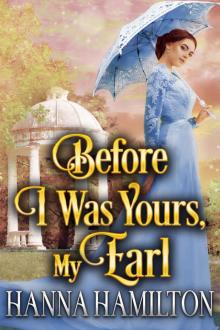 Before I Was Yours, My Earl: A Historical Regency Romance Novel
Before I Was Yours, My Earl: A Historical Regency Romance Novel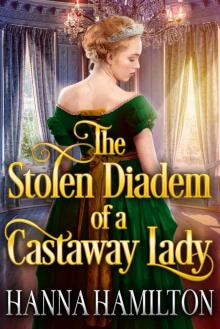 The Stolen Diadem of a Castaway Lady: A Historical Regency Romance Novel
The Stolen Diadem of a Castaway Lady: A Historical Regency Romance Novel The Earl That Overruled My Destiny
The Earl That Overruled My Destiny Annabelle Enchants the Rejected Earl: A Historical Regency Romance Novel
Annabelle Enchants the Rejected Earl: A Historical Regency Romance Novel Diana Adores the Puzzled Duke_A Historical Regency Romance Novel
Diana Adores the Puzzled Duke_A Historical Regency Romance Novel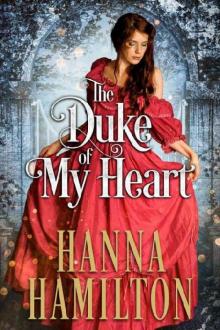 The Duke of My Heart (Regency Romance)
The Duke of My Heart (Regency Romance)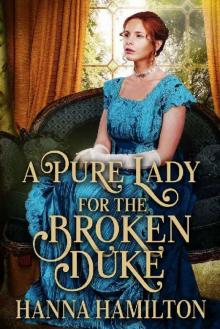 A Pure Lady for the Broken Duke
A Pure Lady for the Broken Duke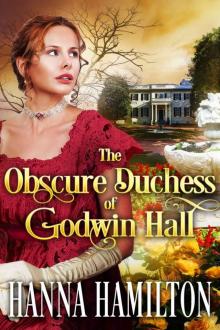 The Obscure Duchess of Godwin Hall_A Historical Regency Romance Novel
The Obscure Duchess of Godwin Hall_A Historical Regency Romance Novel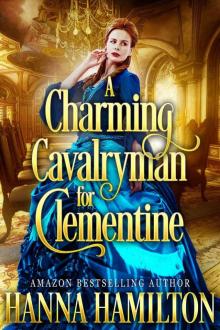 A Charming Cavalryman for Clementine_A Historical Romance Novel Based on True Events
A Charming Cavalryman for Clementine_A Historical Romance Novel Based on True Events The Governess Who Stole My Heart: A Historical Regency Romance Novel
The Governess Who Stole My Heart: A Historical Regency Romance Novel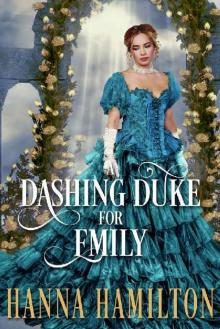 A Dashing Duke for Emily_A Historical Regency Romance Novel
A Dashing Duke for Emily_A Historical Regency Romance Novel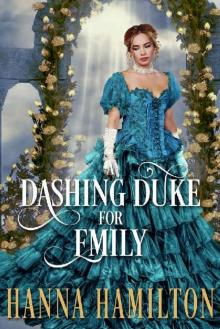 A Dashing Duke for Emily
A Dashing Duke for Emily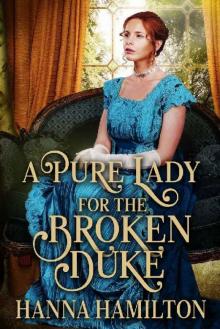 A Pure Lady for the Broken Duke_A Historical Regency Romance Novel
A Pure Lady for the Broken Duke_A Historical Regency Romance Novel The Scandal of the Deceived Duchess: A Historical Regency Romance Novel
The Scandal of the Deceived Duchess: A Historical Regency Romance Novel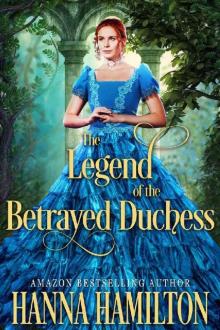 The Legend of the Betrayed Duchess_A Historical Regency Romance Novel
The Legend of the Betrayed Duchess_A Historical Regency Romance Novel The Scandalous Saga of the White Lady: A Historical Regency Romance Novel
The Scandalous Saga of the White Lady: A Historical Regency Romance Novel